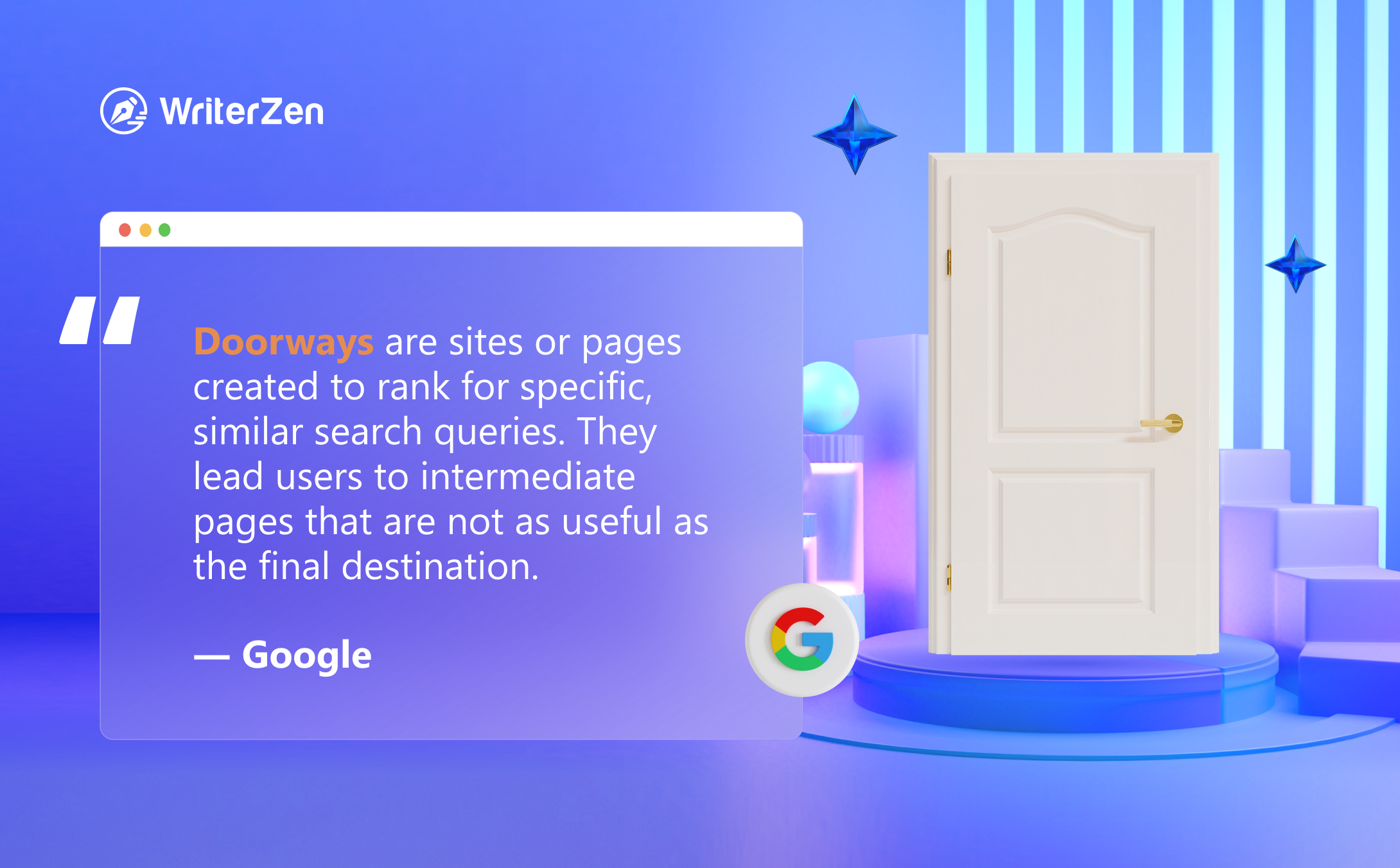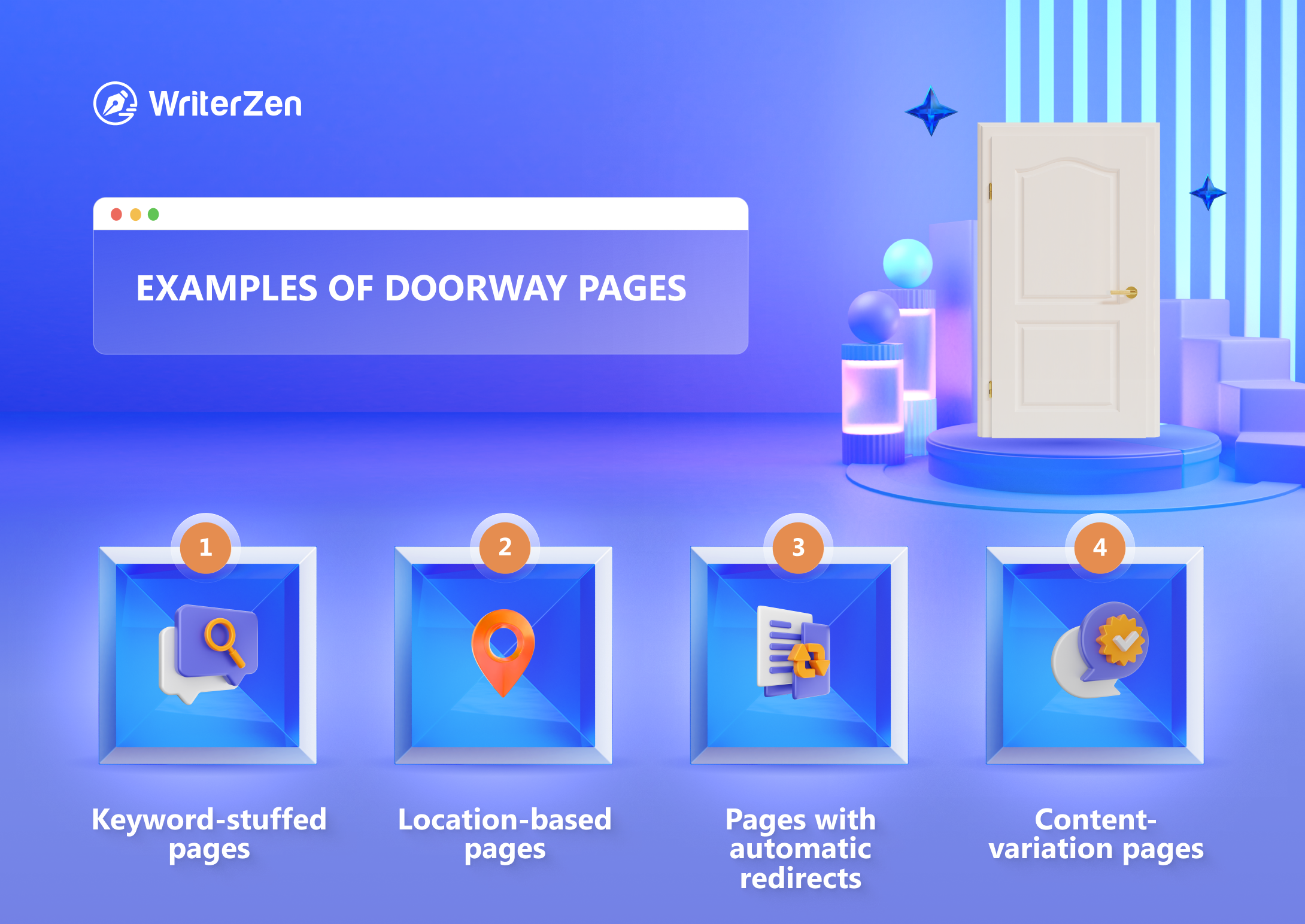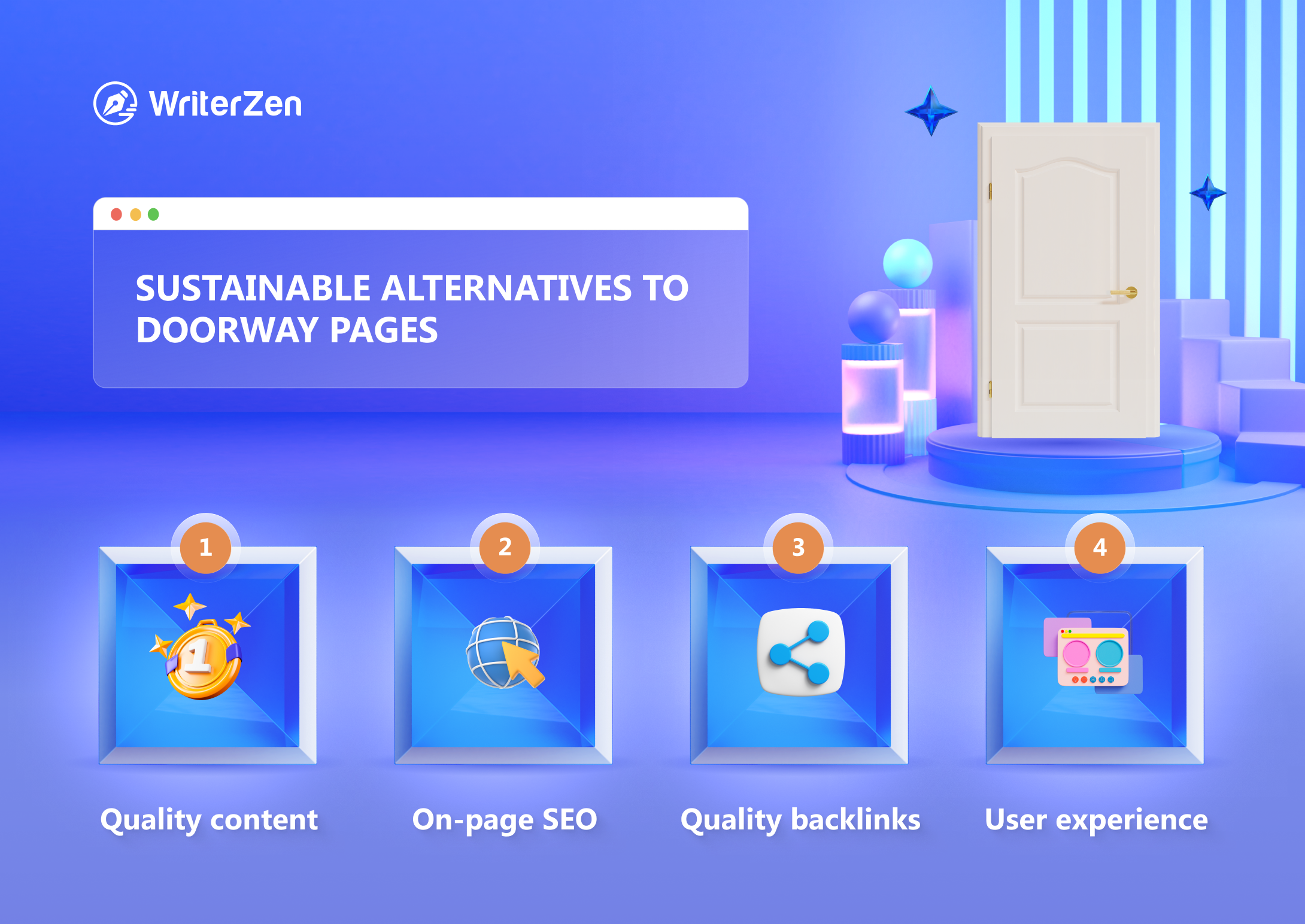In the vast realm of digital marketing, success hinges on adapting and innovating. While countless strategies and tactics are available, it's crucial to understand that only some are ethical and effective.
Today, we'll delve into the intricate world of doorway pages, shedding light on what they are, how they differ from landing pages, and why search engines frown upon them.
What Are Doorway Pages?
Doorway pages are designed to rank highly in search engine results for particular keywords or phrases. Their primary purpose is to redirect visitors to another destination, often the website's main landing page or another internal page.
Doorway pages serve as a portal, luring users with the promise of content related to their search query and then ushering them toward a different destination within the same website. They are made for ranking on SERPs, not giving users the desired results.

An important thing to note is that doorway pages are considered a spam tactic by search engines and are a prime example of black hat SEO techniques. These practices can significantly harm your SEO rankings and, in severe cases, could lead to your website being blacklisted by search engines.
Doorway Pages vs. Landing Pages
To better understand doorway pages, it's essential to differentiate them from landing pages, as they are often confused due to their similar functions in the conversion process.
Landing Pages
Landing pages are standalone web pages designed for a single marketing campaign or promotion. They are created to convert visitors into leads or customers by focusing on a particular call-to-action (CTA).
Landing pages are not meant to rank organically in search engine results; they are typically accessed via ads or specific links.
Doorway Pages
Doorway pages are designed primarily for search engine optimization (SEO) purposes. They often lack substantial content and value for the user, serving as a mere gateway to other parts of the website.
In essence, while landing pages are integral to marketing campaigns, designed with user value in mind, doorway pages are primarily created to deceive search engines and manipulate rankings.
Examples of Doorway Pages

-
Keyword-stuffed pages: These doorway pages are created with the sole purpose of stuffing keywords and key phrases in an attempt to manipulate search engine rankings. They often contain little to no valuable content for users and are solely optimized for search engines.
-
Location-based pages: Websites may create multiple doorway pages, each targeting a specific location, even if they don't have a physical presence there. These pages exist to rank for location-specific keywords but provide minimal local relevance or information.
-
Pages with automatic redirects: Some doorway pages are set up with automatic redirects to other pages within the same website. Users who land on these pages are quickly redirected to another page, often the main homepage, without consent.
-
Content-variation pages: These are different web pages indexed individually, but their content only exhibits slight variations. They often contain similar information with minor alterations and are pretty much interchangeable regarding the user experience. Their primary purpose is to target multiple keywords or search queries.
It's important to note that these practices are discouraged by search engines, especially Google, and may result in penalties or a loss of search rankings when detected. You must prioritize user-centric and ethical SEO strategies to ensure your SEO is above board and you don’t suffer the wrath of Google.
Google's Update on Doorway Pages
Google has taken a proactive stance against doorway pages.
In March 2015, Google released a significant update to address the issue of doorway pages. This update, sometimes called the "Doorway Page Algorithm," targeted websites that used doorway pages to manipulate search rankings.
Google updated its algorithms to provide users with the most relevant and valuable search results. Over the years, Google has explicitly discouraged doorway pages and has taken steps to penalize websites that employ this tactic.
Google aims to ensure users find high-quality, relevant content when searching and reward websites prioritizing genuine and helpful content rather than those using doorway pages to manipulate search rankings.
The update also aimed to identify and penalize websites engaging in spammy SEO tactics like keyword stuffing and unnatural link building through doorway pages.
The outcome of this update is a noticeable decline in the rankings of websites that relied on doorway pages to inflate their SEO performance artificially. Google clarified that such tactics would not be tolerated in its pursuit of delivering high-quality search results.
Instead of resorting to questionable tactics like doorway pages, here is what you need to do to get the most out of your SEO strategies.

-
Have Quality Content: Create valuable, informative, and engaging content that caters to your target audience's needs and interests.
-
Work on On-Page SEO: Optimize your website's on-page elements, including meta tags, headings, and image alt text, to improve your organic search rankings legitimately.
-
Build Quality Links: High-quality, relevant backlinks from reputable sources will boost your website's authority.
-
Focus on User Experience: Prioritize user experience by ensuring your website is easy to navigate, mobile-friendly, and loads quickly.
Final Thoughts
In the dynamic world of digital marketing, staying up-to-date with the latest strategies and tactics is essential for success. However, it's equally important to approach marketing ethically and professionally.
Doorway pages may have once been a tempting shortcut to higher search engine rankings, but the crackdown on this practice should serve as a warning.
Building your online presence on a foundation of genuine content and user-centric strategies is crucial. While the allure of quick wins in digital marketing may be tempting, it's vital to remember that sustainable success is built on a foundation of ethical and user-focused practices.














